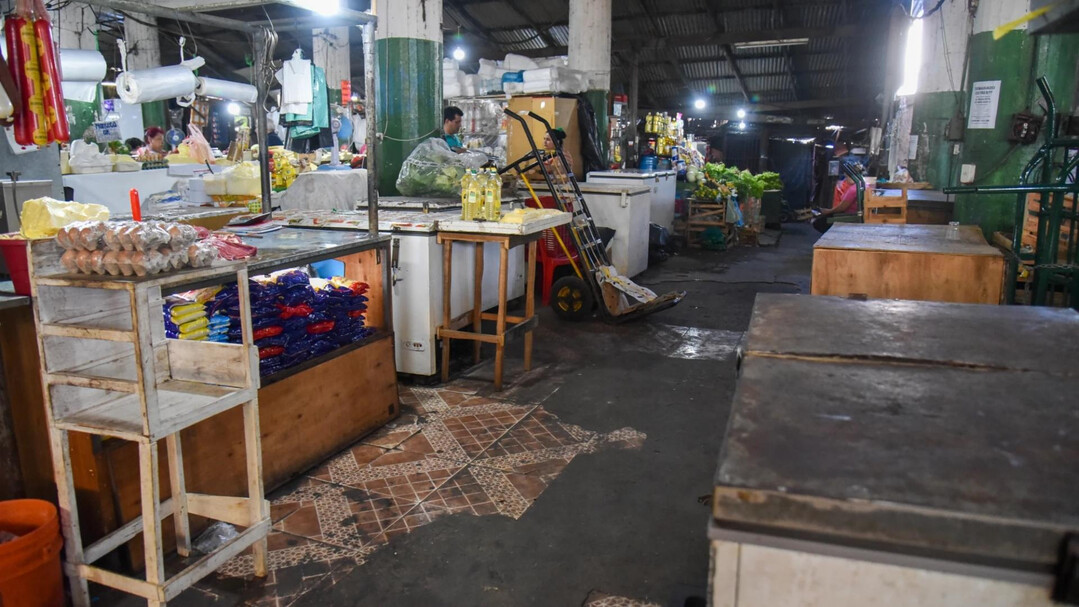
ASUNCIÓN, PARAGUAY – Mercado N° 4, a prominent market in Asunción, Paraguay, is facing a severe safety emergency due to critical structural issues. Interim administrator Alejandro Buzó recently warned in a media interview that the emergency staircase of the old butcher shop building within the market is at risk of collapse, and the entire building suffers from serious sanitation problems and electrical system defects.
According to Buzó, the building was constructed with funding from Itaipu Binacional in the past, but it appears to have had several structural flaws since its completion. He specifically emphasized that the emergency staircase "has never been used and is at risk of collapse," arguing that Itaipu, having funded the construction, should be held responsible for the current severe defects.
Buzó stated that as part of the ongoing market intervention process, he has sent an official letter to Itaipu requesting the resumption of technical consultations. Itaipu had funded the construction of this building and selected the contractor as part of a market improvement project, but even after completion, the building has been neglected and dysfunctional. Buzó strongly criticized Itaipu, claiming that despite handing over the building as completed, severe defects actually exist.
Furthermore, a shocking field inspection by the Directorate of Fire Prevention in 2020 revealed that the building's fire prevention system was "inoperable." This raises serious questions about the building's occupancy permit and suggests that fundamental improvements have not been made to this day. Buzó strongly demanded that Itaipu take responsibility for this neglected area and rectify all defects "so that the building can be properly completed and operated according to regulations." The estimated cost for renovating the old butcher shop area is approximately 12 million Guaraní (about 2,150,000 KRW), which Buzó emphasized should be covered by Itaipu's funds, not the city budget.
Urgent Improvement Needed for "Paseo de los Yuyos" (Herbal Medicine Market): Sanitation and Tourism Promotion
Meanwhile, another area within the market, the "Paseo de los Yuyos" (Herbal Medicine Market), also urgently needs improvement. Issues such as a lack of restrooms for vendors and the need to improve stalls have been raised in this area. Buzó stated that the Directorate of Zonal Markets is developing strategies to transform this area into a tourist attraction.
The most urgent problems are water leaks due to burst sewage pipes and the need for road paving improvements. Buzó explained his plan to improve the aesthetics of the stalls, resolve sewage issues in cooperation with Essap (Paraguay's water and sanitation company), and improve road paving in cooperation with Vialidad (the road department). He expressed his desire to push for these works before the market intervention concludes. Regarding the potential for becoming a tourist attraction, Buzó emphasized, in cooperation with private sector representatives, that "this place should become a center of tourism and be protected again as a place that shows our identity." He mentioned the possibility of installing temporary restrooms but also positively evaluated that vendors paying for private restroom usage could stimulate the economy.
Stall Improvement Costs Are Free: Easing Vendor Burden
Finally, Buzó clarified that vendors do not need to pay for stall improvements. He stressed that "improvement permits are free and incur no cost," dismissing claims that some city officials were demanding payment from vendors for improvements. However, he added that any outstanding debts the vendor may have must be settled before an improvement permit can be obtained.
According to Buzó's explanation, the number of improvement applications has increased since the market intervention, with approximately 12 to 14 improvement permits issued so far. While this is only a fraction of the total 2,630 vendors, it shows that opportunities for vendors to improve their stalls are opening up. He emphasized that vendors must carry out improvement work within the permitted stall area.
This announcement clearly illustrates the severe structural problems facing Mercado N° 4, a major market in Asunción, along with the efforts and challenges of the city authorities to resolve them. It appears that the market's safety and functionality can only be restored through Itaipu's responsible stance and the city authorities' proactive intervention.
[Copyright (c) Global Economic Times. All Rights Reserved.]






























